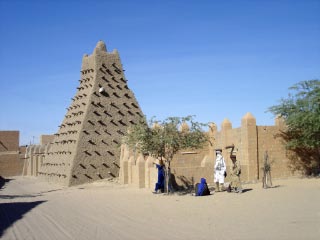Gold and platinum serve as South Africa’s chief exports;
indeed, South Africa is the world’s largest platinum producer. It would be
foolish to think that the mine strikes in South Africa will have little
economic repercussions on both a domestic and international scale. Over the
past few weeks, South African mining corporations have been closing down amid
unbearable financial losses. While one could claim that the mining industry might
be cooling down, the lost production due to mine closures will continue to stimulate
negative ripples throughout the state. It is doubtful that the industry’s
recovery will be strong; in fact, a poorly-executed recovery may lead to further
stagnation and political conflict.
 |
Platinum flakes are commonly refined into circuit
electrodes, which are used in the production of nearly every electronic device
from vehicle-based computers to tablet computers.
|
A
recent economic poll carried out on September 17 stated that South Africa has
lost around USD $563 million in revenue due to the mining industry strikes – not
to mention the deaths of dozens of miners amid protest violence and
police enforcement. The strikes themselves are rooted in wage demands, but they carry significant undertones of political discontent. In light
of the violence and stoppage, the African National Congress has cracked down through prosecutions and arrests towards miners participating in strikes and protests.
The ANC’s seemingly harsh backlash has tarnished its reputation. Political
analysts suggest that while the ANC has admitted to a certain lack of economic reform
during its governance, it may be too late for the ANC to put any reforms into
place. Aggressive party leaders with the backing of an impoverished selectorate and unemployed citizens are proving too much to handle for Jacob Zuma’s regime. The
strikes may be the catalyst that opposition leaders are looking for to add
significant pressure against the ANC.
 |
With striking workers, a mine loses nearly 6,000 metric tons
of rock processing per day. With multiple mines under strike for weeks at a
time, the economic production effects are ostensible.
|
Prominent
mining corporations, such as Lonmin and AngloGold, are familiar with worker
strikes. However, the strikes at Marikana – the epicenter of this conflict –
have never before been so violent. The ANC’s militant reaction has certainly
distanced the governing institutions from the mining corporations, resulting in
rage-fueled negotiations and general frustrations from all parties involved.
While Lonmin mines have resumed business operations, recent strikes at AngloGold
prove that this industry conflict is not easing.
The ANC
needs to tread very carefully in the coming months if it wants to remain democratically
credible to other South African actors – namely the labor unions and mining
corporations – while realizing how much this domestic conflict also effects international
trade and state-based economic growth.
References:
Images courtesy of Midwest Refineries, Inc. & Business
Insider





